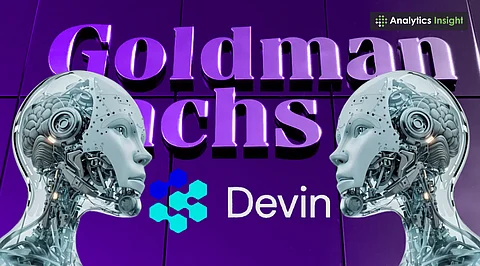

Goldman Sachs has introduced an AI software engineer called Devin AI, in a daring move that rocked the tech and financial sectors. This advanced AI model has been developed by London-based startup Cognition. The artificial intelligence software engineer works 24/7 and never needs a lunch break, let alone a salary.
The bank intends to deploy thousands of Devin AI units in phases. This decision highlights the massive investment financial giants are making in AI, particularly in banking, to enhance speed and reduce operational bottlenecks.
Devin AI is being integrated into systems currently manned by more than 12,000 human developers at Goldman Sachs. According to Marco Argenti, the Chief Information Officer, Devin AI can outperform traditional AI tools in every way and triple the output.
The artificial intelligence model focuses on mundane and time-consuming tasks, such as modifying legacy codes, which are often avoided by human engineers. This promises to bring an efficient and scalable development ecosystem to banks.
Early-career opportunities might be greatly reduced by autonomous AI engineers. A Bloomberg Intelligence report suggests that up to 200,000 banking jobs will be automated across the globe in the next five years.
Junior developers and analysts may become obsolete and lose their positions. This Goldman Sachs AI is set to take over coding, research, and data handling. The AI innovation shift also calls for a rethink in career planning for aspiring engineers.
In terms of automation, Goldman Sachs stands for the hybrid AI-human approach. A developer will now be expected to translate a problem into prompts and oversee those prompts through the AI tools.
While artificial intelligence performs repetitive coding, humans will be freed up to focus on more creativity, decision-making, and client interaction-related work, which are still beyond AI’s reach.
Deploying Devin AI is a turning point for software engineering and AI in banking. This brings massive gains in productivity, along with efficiency. However, this change implies a reconstruction of job and career possibilities, bringing with it certain threats, especially for fresh entrants.
With the rapid changes in the industry brought about by further developments in AI, practitioners need to keep pace with this evolution and develop new-age skills proficiently to stay relevant in an increasingly automated future.
